Having children more a priority for Westerners - Swansea uni study
- Published
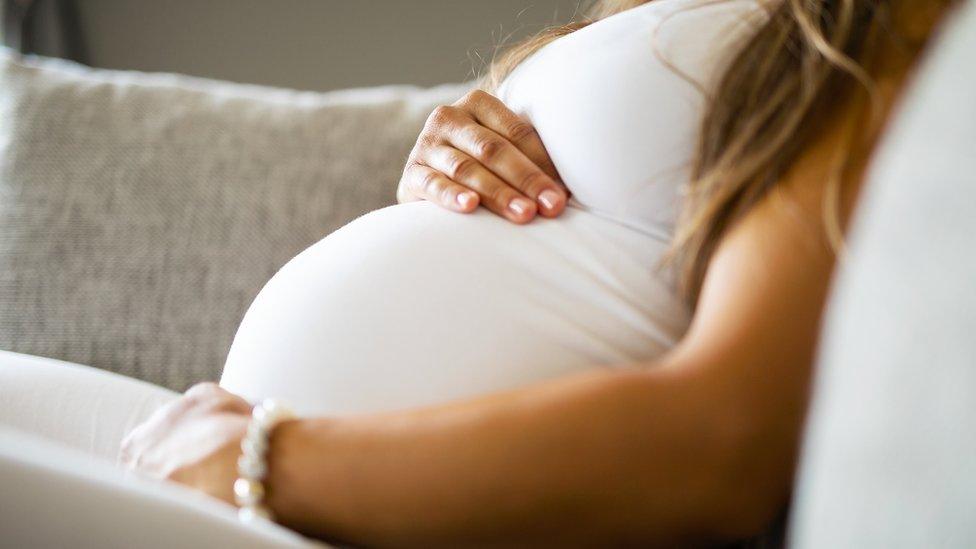
People from Western cultures are more likely to look for a partner who wants children than those in the East, a Swansea University study has found.
The research found women and men in countries such as the UK and Australia were more likely to prioritise a partner who wants children.
Dr Andrew Thomas, from Swansea University, said this was as a result of better family planning options.
Looks and kindness ranked highly across all cultures and both sexes.
The research, conducted by scientists at Swansea University and other academic institutions from around the world, gave 2,500 participants virtual dollars to spend on traits they would look for in a partner.
Budgets were restricted to determine the priorities of people when looking for a partner.
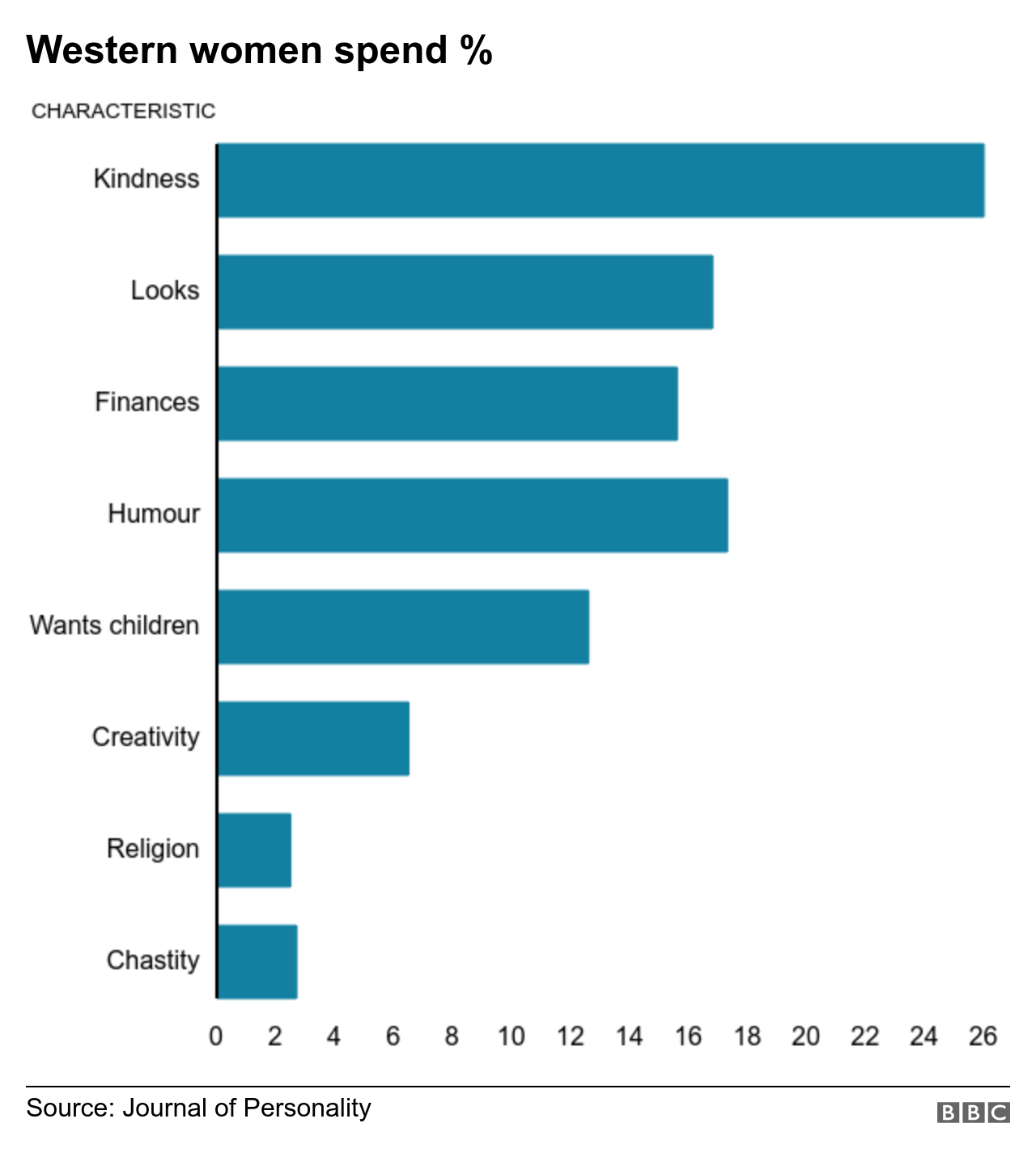
Kindness, humour and looks scored highly for Western women, while wanting children ranked significantly higher than other groups
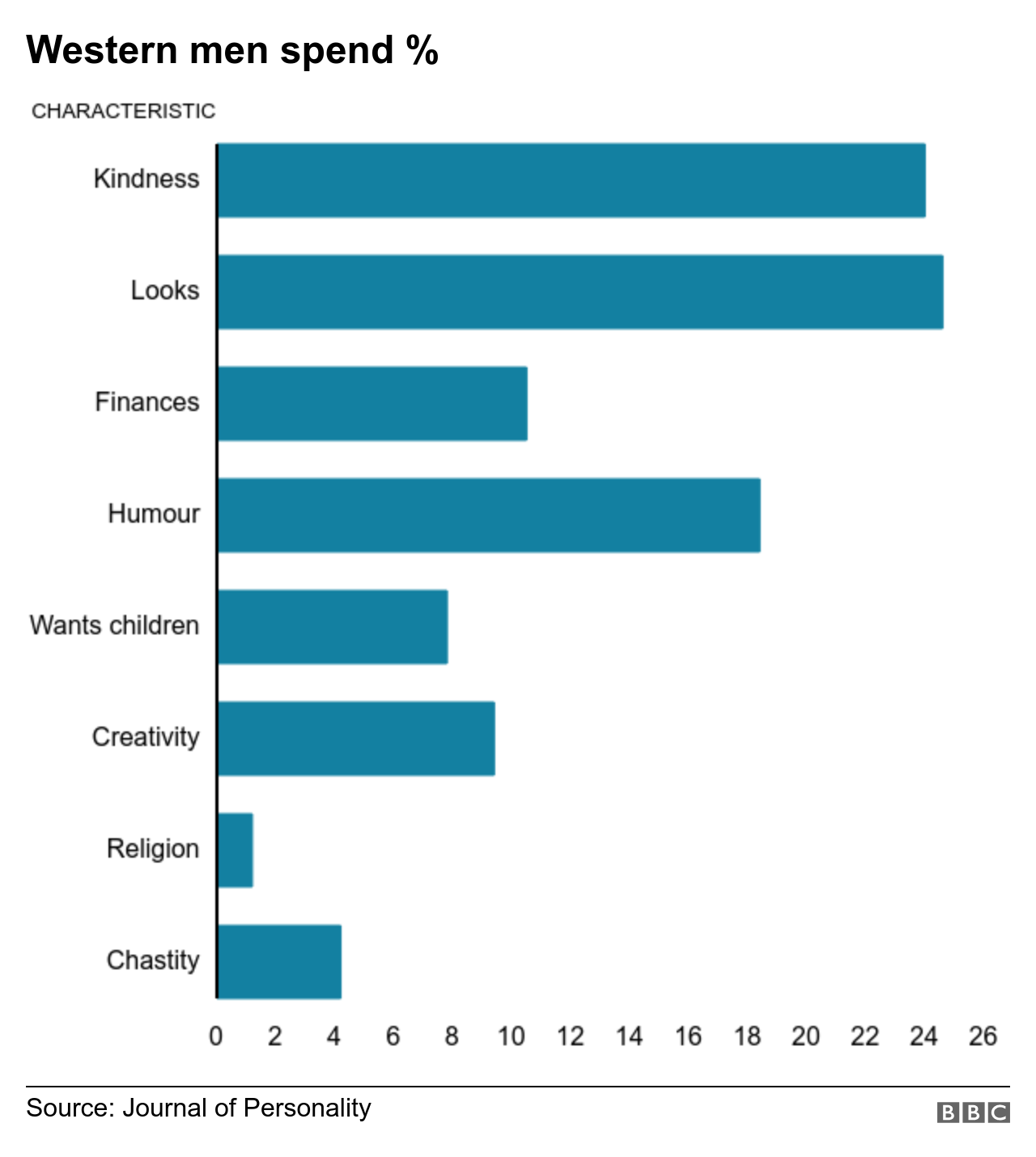
Western men was the only group where kindness did not come out on top
Women from Western countries spent 12.6% of their budgets on the trait "wants to have children," while men spent 7.8% of theirs on the same trait.
But both men and women in Eastern cultures, such as China, Indonesia and Malaysia, spent less of their budgets on this trait, with men spending 6.6% and women 6.2%.
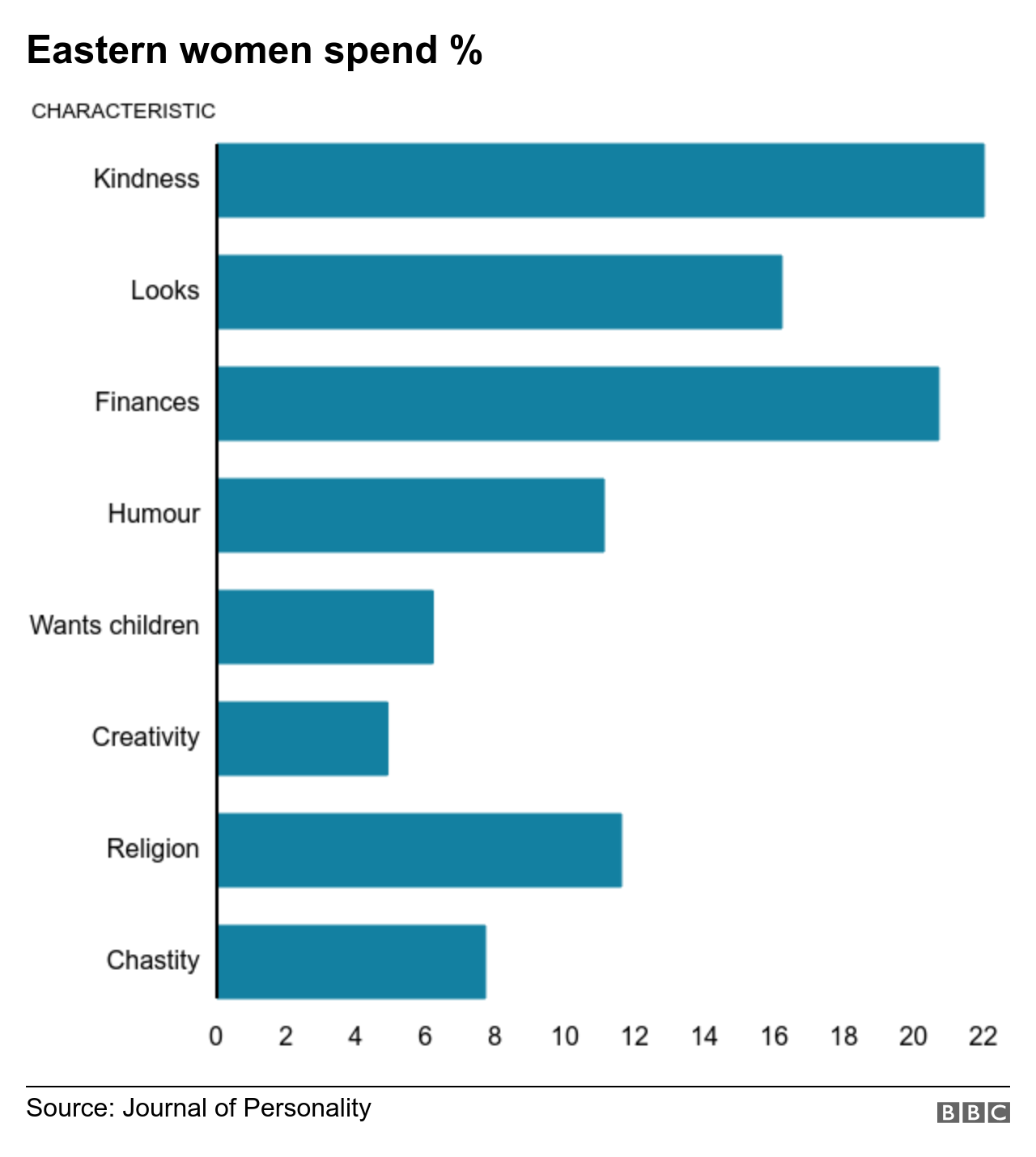
Religion was considered as important to humour by Eastern women
Dr Thomas, who co-ran the study, said the difference was most likely down to better family planning options in Western cultures.
"In Western cultures were have contraception, we have freedom to have abortions," he said.
"We have the choice to put things off. As a Western person you have the means to turn around and say 'I don't want to have kids,' but in Eastern counties it's more of a natural consequence of being in a relationship."
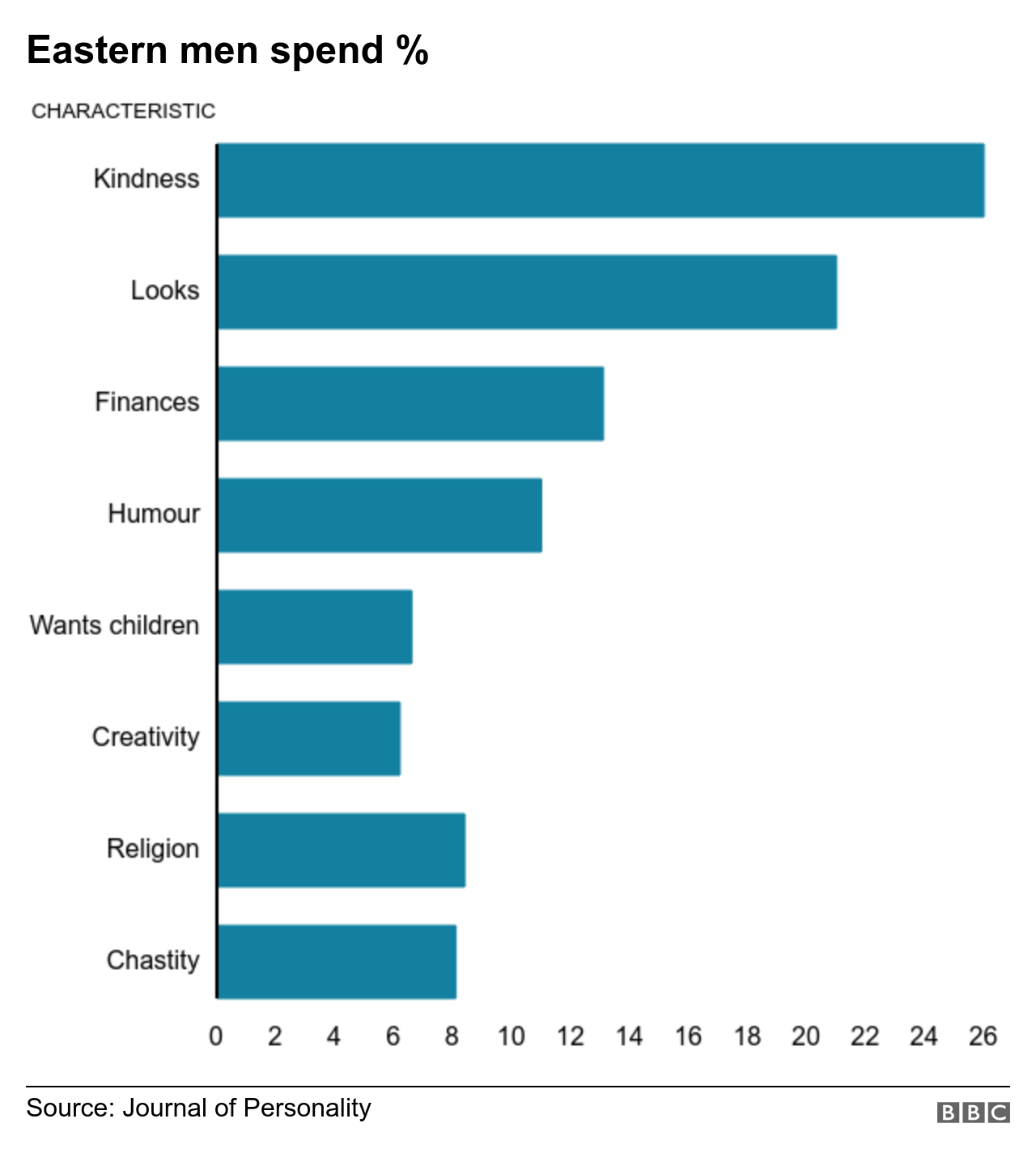
Men in both cultures rated physical attractiveness higher than financial prospects
The most common priority across both cultures was kindness, which led the way in both cultures and sexes, except in Western men, where physical attractiveness ranked higher.
Humour ranked considerably higher in Western cultures, with women spending 17.3% of their budget on it and 18.4% of men, compared to just 11.1% for Eastern women and 11% for Eastern men.
But religion and chastity rated considerably more desirable in Eastern cultures, while these were of minor importance to men and women in the West.
- Published31 July 2019
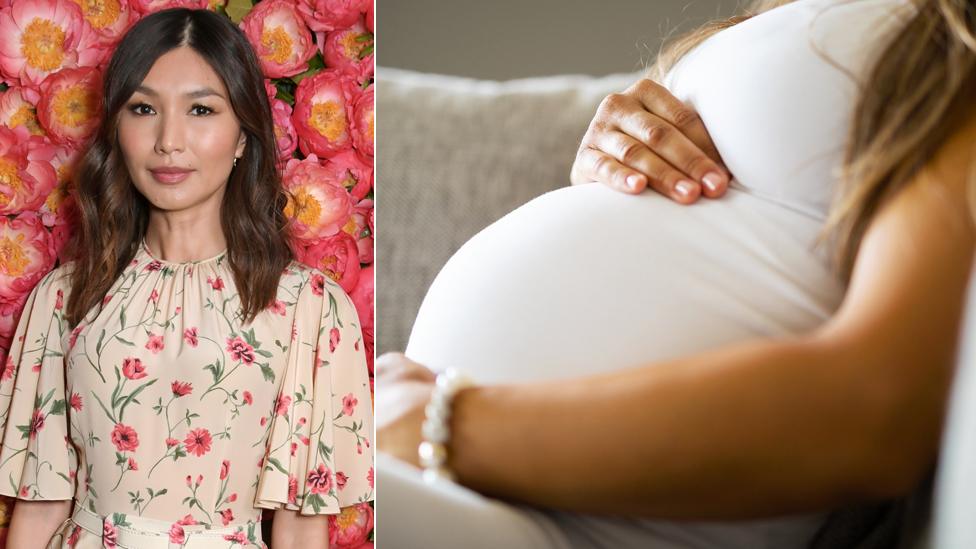
- Published16 August 2018
